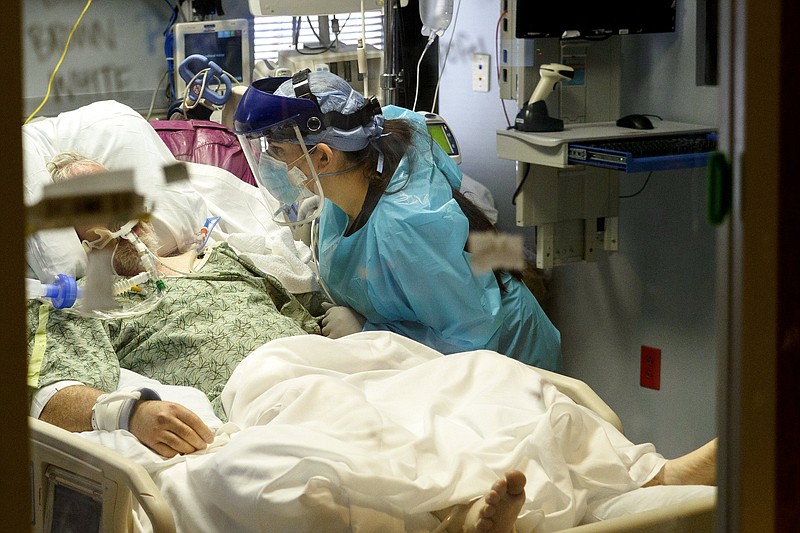All Southeast Tennesseans who need an intensive care unit bed - not just those with COVID-19 - could face drive times up to three times longer to get life-saving care than when the delta surge began six months ago, according to a report released Thursday.
Health policy researchers from the Vanderbilt School of Medicine mapped the availability of ICU beds within a 90-minute drive of each Tennessee county and found there was little to no room to take on additional critically ill patients in nearly every county east of Marion, which includes neighboring Hamilton County.
"Fewer available staffed hospital beds means all patients who need care, like those who have been injured in a car accident or experienced a heart attack, may face delays or the inability to access a preferred hospital," the report states.
(READ MORE: Chattanooga hospitals in peril over omicron as Tennessee governor denies emergency need)
Researchers took ICU bed availability in the state on Jan. 18, 2022, and compared it to July 3, 2021 - which was when COVID-19 hospitalizations reached their lowest point since the early days of the pandemic, just before the delta variant began to surge.
As of Thursday, there were 272 patients hospitalized with COVID-19 in Hamilton County, including 54 in intensive care - up from 39 on Jan. 18.
Last week, local officials said the county has enough physical beds but not enough health care workers to staff them. ICU beds are particularly difficult to staff because those clinicians require a high level of training.
Dr. Jay Sizemore, an infectious disease specialist at Erlanger Health System, said during a public hospital board meeting Thursday that hospitals across both the region and the nation are overwhelmed by the omicron variant.
"Although we're not at as high of a census as we were - at least yet - with the delta variant, we have seen a considerable increase with omicron. And different from the prior variants, we've had more health care providers impacted by this infection and then unable to work," Sizemore said. "From my perspective, this is as stressed as the health care system has been."
While the shortage of ICU beds is greatest in East Tennessee, the Vanderbilt report states that "in almost every county of Tennessee, substantially fewer critical care beds are currently available to Tennesseans within a 90-minute drive" when compared to July 2021.
Evidence suggests the highly contagious omicron variant produces less severe disease in most people, but unvaccinated and immunocompromised individuals face higher risks of severe outcomes. As of Thursday, 52.1% of Tennesseans had completed their initial one or two-dose COVID-19 vaccine series and approximately 20% were up-to-date in terms of booster shots.
"This fact, coupled with the sheer number of cases flooding the state, means that Tennessee hospitals, again, are facing significant strain to care for all patients, not just those suffering from COVID-19," the report states.
Researchers note that Thursday's report is the first to illustrate how timely access to care for all Tennesseans is affected by COVID-19 surges.
"While the current hospitalization outlook is poor, continued vigilance - vaccination, masking, testing and distancing when appropriate - can support the capacity of the Tennessee health care system to provide timely and quality care to all patients during this surge, both those hospitalized for COVID-19 and all others in need of hospital care," the report states.
Contact Elizabeth Fite at efite@timesfreepress.com or follow her on Twitter @ecfite.
